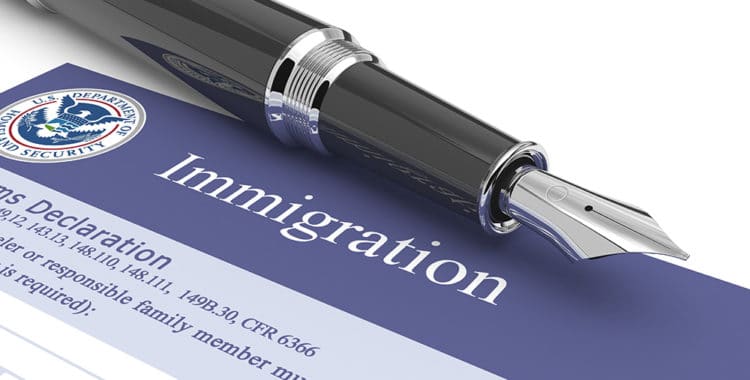Juries No Longer Allowed to Know a Person’s Immigration Status
The Washington State Supreme Court has approved a new rule of evidence that can harm defendants in some domestic violence and sexual assault cases. Effective next year, information about a witness’s immigration status will generally be inadmissible in both criminal and civil cases.
At first you may think, “What does immigration status have to do with domestic violence or sexual assault?” In practice, however, immigration issues can sometimes expose why a complaining witness is testifying against the accused.
This new development in Washington State law makes it even more important for accused persons to have outstanding attorneys.
What does the new rule look like?
The recently approved rule, Evidence Rule 413, makes inadmissible any evidence about immigration status—whether it be the immigration status of the defendant, a complaining witness, or any other person in the case.
Two exceptions factor into the new rule. Evidence of a person’s immigration status will still be permitted in cases where immigration status is essential to proving either an element of the crime charged or a defense to that crime. Immigration status can also be used under the new rule to demonstrate bias or prejudice of a witness. Demonstrating this is called “impeaching” a witness and is covered by Evidence Rule 607.
Before a defense lawyer may bring immigration status evidence before a jury, however, he or she must convince the judge that immigration status fits into one of these two exceptions in the case at hand. One of the ways a skilled defense attorney can make a persuasive argument of this kind to the judge is by illustrating that the witness’s desire to obtain a U visa from law enforcement gave the witness a reason to cast his or her testimony in a light favorable to the prosecution.
What is a U visa?
U visas are available to alleged victims of certain crimes—including domestic violence and sexual assault—who are in the United States illegally. A U visa allows a person who agrees to assist law enforcement in the prosecution of an alleged crime to stay legally in the United States while the prosecution is ongoing.
The U visa was created to help people who have suffered real mental or physical abuse but who would otherwise be reluctant to testify in a criminal or civil proceeding because of fears their immigration status might be exposed in court. Adding to this fear, sometimes U.S. Immigration and Customs Enforcement agents make deportation arrests at Washington State courthouses.
The U visa is a powerful tool. By allowing someone who would otherwise be deported to stay in the United States, it tempts her or him to color testimony to assist law enforcement with a prosecution.
How might this kind of evidence help the accused?
Criminal defense attorneys opposed the new rule before the Supreme Court’s approval, arguing that the rule would make it more difficult to admit important evidence about a witness’s motivations to testify. Showing that the complaining witness in a domestic violence or sexual abuse case may be getting a big immigration benefit because of their complaint could help persuade a jury not to believe the witness.
While this strategy is still acceptable under the new rule, a defense attorney must first prove to the judge, outside the hearing of the jury, that this immigration evidence is proper to admit. To do this, a defense lawyer must think ahead. The lawyer will have to submit a pretrial motion and make arguments during a hearing on the issue.
In light of these developments in Washington law, a skilled defense attorney is vitally important to anyone facing domestic violence or sexual assault accusations by someone who received a U visa in exchange for a complaint. Our experience and skill make us ready to advocate for clients in this situation, even with the challenge the new rule presents. If you need skillful representation, please contact us at 206.826.1400 or solutions@marshalldefense.com.





